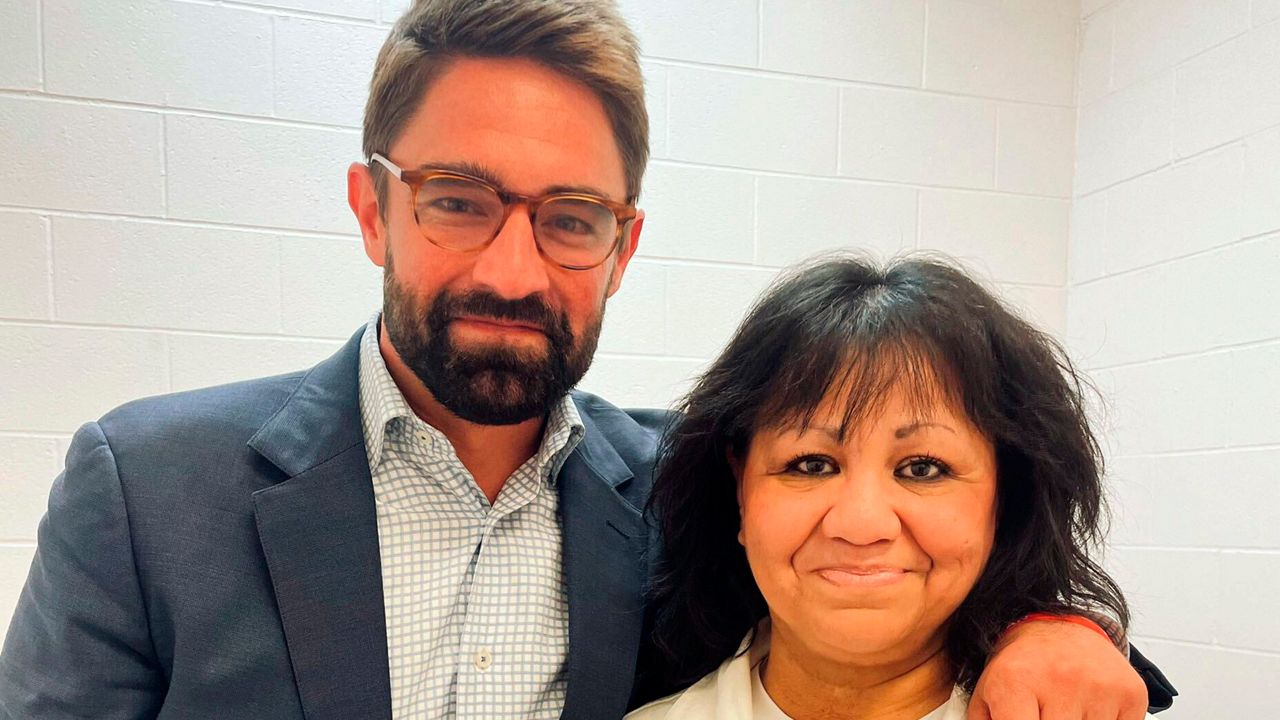HOUSTON — A Texas appeals court on Monday delayed the execution of Melissa Lucio amid growing doubts about whether she fatally beat her 2-year-old daughter in a case that has garnered the support of lawmakers, celebrities and even some of the jurors who sentenced her to death.
The Texas Court of Criminal Appeals granted a request by Lucio’s lawyers for a stay of execution so a lower court can review her claims that new evidence in her case would exonerate her. It was not immediately known when the lower court begin reviewing her case.
“I thank God for my life. I have always trusted in Him," Lucio said. "I am grateful the Court has given me the chance to live and prove my innocence. Mariah is in my heart today and always. I am grateful to have more days to be a mother to my children and a grandmother to my grandchildren. I will use my time to help bring them to Christ. I am deeply grateful to everyone who prayed for me and spoke out on my behalf.”
Lucio had been set for lethal injection on Wednesday for the 2007 death of her daughter Mariah in Harlingen, a city of about 75,000 in Texas’ southern tip.
The execution stay was announced minutes before the Texas Board of Pardons and Paroles had been set to consider her clemency application to either commute her death sentence or grant her a 120-day reprieve.
Lucio’s attorneys say her capital murder conviction was based on an unreliable and coerced confession that was the result of relentless questioning and her long history of sexual, physical and emotional abuse. They say Lucio wasn’t allowed to present evidence questioning the validity of her confession.
Her lawyers also contend that unscientific and false evidence misled jurors into believing Mariah’s injuries only could have been caused by physical abuse and not by medical complications from a severe fall.
“I knew that what I was accused of doing was not true. My children have always been my world and although my choices in life were not good I would have never hurt any of my children in such a way,” Lucio wrote in a letter to Texas lawmakers.
Cameron County District Attorney Luis Saenz, whose office prosecuted the case, has said he disagrees with Lucio's lawyers' claims that new evidence would exonerate her. Prosecutors say Lucio had a history of drug abuse and at times had lost custody of some of her 14 children.
During a sometimes contentious Texas House committee hearing on Lucio’s case this month, Saenz initially pushed back on requests to use his power to stop the execution, before later saying he would intervene if the courts didn’t act.
“I don’t disagree with all the scrutiny this case is getting. I welcome that,” Saenz said.
Armando Villalobos was the county's district attorney when Lucio was convicted in 2008, and Lucio’s lawyers allege that he pushed for a conviction to help his reelection bid. In 2014, Villalobos was sentenced to 13 years in federal prison for a bribery scheme related to offering favorable prosecutorial decisions.
This is a breaking news story. We will have more updates as more information becomes available.



